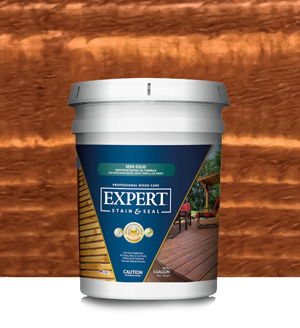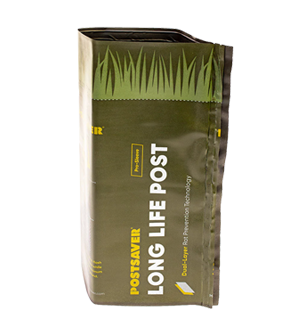Do You Have to Have a Fence Around a Pool: A Guide
 Pool safety is a critical issue for homeowners with residential swimming pools, and it extends beyond personal responsibility—it's also a legal matter.
Pool safety is a critical issue for homeowners with residential swimming pools, and it extends beyond personal responsibility—it's also a legal matter.
In many areas, building codes require a fence around the pool to protect children, pets, and guests.
The fence is not just a preventive measure; it serves as a vital barrier to prevent access to the pool area, especially for younger ones who may not understand the risks.
Understanding the legal requirements of pool fencing is thus a must for pool owners, as failure to comply could lead to severe consequences.
We will discuss the different types of pool fences and how various barriers can enhance safety. Also, consider exploring types of fence gates to complement your pool fence.
Understanding Pool Fence Requirements: Is It Mandatory?
 In many areas, pool fences are mandatory for safety. However, whether it is legally required will depend on local regulations.
In many areas, pool fences are mandatory for safety. However, whether it is legally required will depend on local regulations.
When Pool Fences Are Legally Required
In many jurisdictions, pool fences are required by law, particularly for residential in-ground pools. Regulations can vary significantly by state, province, and even city.
For example, many U.S. states adhere to the International Swimming Pool and Spa Code, which sets guidelines for pool fencing, including minimum height and gate standards.
Homeowners should always check local codes to understand specific requirements. Additionally, temporary or portable pools, depending on their depth, may also be subject to fencing rules.
Understanding these legal mandates is crucial to maintaining a safe and compliant pool area.
Why Laws Exist: Safety and Liability
These laws exist primarily to prevent drowning accidents, which are a leading cause of accidental death in children under five. A pool fence helps protect children and pets from unsupervised access to the water.
Even in areas where a pool fence is not required, many insurance companies and safety experts recommend one to limit homeowner liability. Having a fence reduces the risk of tragic accidents and offers peace of mind.
For more information on how property boundaries relate to pool fencing, you can explore property boundaries.
Types of Pool Fencing Options
Homeowners have several options when it comes to pool fencing, with choices ranging from permanent to removable types.
Popular materials include mesh, aluminum, wood, vinyl, and glass, each offering its own aesthetic and functional benefits.
For example, mesh fencing is removable, making it ideal for temporary pool setups. On the other hand, aluminum and vinyl offer durable, low-maintenance solutions.
Finally, glass fences provide an elegant look with unobstructed views of the pool area.
Additionally, homeowners can choose between full-yard fencing, which encloses the entire property, and perimeter-only fencing specifically around the pool.
Regardless of style or material, all pool fences must meet specific requirements for height, gates, and latches to comply with local safety codes.
NOTE: For maintaining wood fences, consider our wood care products, and for fencing projects, explore our fence staining equipment.
Understanding U.S. Pool Fence Regulations
Pool fence regulations vary across the U.S., with federal guidelines providing the foundation while local laws dictate specific requirements.
Federal Guidelines vs. Local Codes
Federal agencies like the Consumer Product Safety Commission (CPSC) and the International Swimming Pool and Spa Code (ISPSC) offer general recommendations for pool fencing, such as minimum height, gate locks, and barrier specifications.
However, local laws always take precedence. Each state, county, and even city may have specific rules about fence height, gate locks, rail spacing, and whether the entire pool area or the entire backyard needs to be enclosed.
The ISPSC and CPSC provide a baseline, but homeowners must check local codes to ensure compliance with precise requirements.
Examples of State-Level Pool Fence Requirements
For example, Florida requires a barrier at least 4 feet high, self-closing and self-latching gates, and gaps no greater than 4 inches.
In California, homeowners can choose from several safety options, including a fence, cover, or alarms, but fences must be at least 60 inches tall. Lastly, Texas generally follows IRC/ISPSC guidelines with local amendments.
Just remember that permits are often necessary, and local building departments may conduct inspections to verify compliance.
How to Verify Local Fence Codes
To ensure compliance with local regulations, homeowners should contact their local building or zoning office, check their municipality’s online code portal, or consult with a licensed contractor.
Relying on generalized information can be risky, so confirming details directly with local authorities is essential for meeting the legal requirements.
What Happens if You Don’t Have a Fence?
Failing to comply with pool fence regulations can lead to several serious consequences. Local authorities may impose fines or require immediate changes to your pool area.
Furthermore, insurance companies may increase premiums or refuse coverage altogether if the pool is deemed unsafe.
In the unfortunate event of an accident, pool owners can also be held personally liable, leading to potential legal and financial repercussions.
Ignoring these requirements can result in the denial of permits for future construction or renovation projects, and could even affect your ability to sell the property.
This is why homeowners must follow the rules to avoid these issues, as non-compliance can significantly impact both safety and finances.
Full-Yard Fence vs Pool-Only Fence: What’s Better?
When deciding between a pool-only fence and a full-yard fence, key considerations include your needs, budget, and local regulations.
A pool-only fence is typically more budget-friendly and can meet most legal requirements, making it a great option for homeowners who want to secure the pool area without enclosing the entire yard.
However, it may limit the flow of your outdoor space and may not provide additional protection for pets or children.
On the other hand, a full-yard fence offers better overall safety, acting as a barrier for pets, children, and even unwanted animals. It can also improve privacy and create a more cohesive look, but it tends to be more costly and complex to install.
When choosing, consider your property layout, lifestyle, and the legal codes in your area. For added protection, consider a post rot protector or a chain link fence bottom guard to enhance your fence's durability.
How Fence Armor Products Can Support Pool Fencing

Fence Armor offers a range of post protection products designed to significantly extend the lifespan of pool fences, especially those with wooden or metal posts exposed to water, chlorinated environments, or moist soil.
These products help maintain the integrity of your fence structure by preventing common issues like rot, corrosion, and wear. Here’s how our offerings can support your pool fencing investment:
-
Fence Post Guard – Designed to prevent rot and moisture damage, the fence post guard protects wooden posts at ground level, significantly extending the life of your fence posts.
-
Post Caps – These caps provide a protective barrier at the top of fence posts, keeping water, debris, and pests from infiltrating and causing rot or corrosion.
-
Mr. Fence Protector – Specifically designed to shield fence posts from damage during construction or repairs, the Mr. Fence Protector ensures that your fence stays secure and protected from unnecessary wear and tear.
-
Wood Stain – Applying wood stain enhances the beauty of your wooden posts and adds an extra layer of protection against moisture, ensuring long-lasting durability.
-
Wood Fence Tool – A wood fence tool is essential for precise installation and maintenance, managing your fence’s longevity, and making repairs and adjustments easier.
-
Speed Square – Ensuring proper alignment, the speed square is a must-have for accurate, efficient installation and adjustments to keep your pool fence secure.
These essential add-ons will help reduce maintenance, prevent damage, and maximize the durability of your fence, ensuring it remains safe and reliable for years to come.
Frequently Asked Questions (FAQs)
Here are some common questions regarding pool fences and safety regulations:
What Are the Pool Fence Requirements in My State or City?
Pool fence laws vary widely depending on your location. The best approach is to contact your local building department or search municipal codes online.
Local codes may dictate specific requirements such as fence height, gate locks, or rail spacing. Always verify the details with a reliable authority rather than relying on general advice, as requirements can differ greatly between regions.
Can I Use My Existing Backyard Fence to Meet Pool Safety Laws?
In some cases, your existing backyard fence may qualify if it meets pool safety standards such as proper height, non-climbability, and self-latching gates.
However, older fences may not meet newer codes. You may need to add gates or modify certain sections to ensure compliance with current regulations and keep your pool area safe.
Is a Pool Cover a Legal Substitute for a Fence?
In certain areas, a powered safety pool cover may meet legal requirements instead of a fence. However, this is only true if the cover is certified and meets American Society for Testing and Materials (ASTM) standards.
Most local codes still prioritize fencing as the first line of defense. It’s vital to verify your local requirements to determine whether a pool cover can substitute for a fence.
Key Takeaways on Fences Around Pools
Pool fences are often legally required and always highly recommended to ensure safety. They play a crucial role in protecting children, pets, and property from potential accidents.
Since legal codes vary by location, it’s essential to check your local regulations before installing a fence.
In fact, Fence Armor products are an excellent way to support the longevity of your pool fence, preventing common issues like rot and corrosion.
If you have any specific requirements, always contact local authorities. When you're ready to enhance your pool fencing, shop at Fence Armor for high-quality protective accessories.
If you want to build a fence compliant with local laws that can elevate your property values and last for years to come, here are some Fence Armor products and collections that can meet your needs:
Fence Post Puller | Stain Machine | Post Saver Sleeve | Mr fence Tools | Semi Transparent Stain | Wood Stripper | Fence Guard | Mr Fence Protector | Wood Fence Tools | Expert Stain and Seal | Fence Post Sleeve | Decorative Fence Post Caps | 4x4 Post Protector | Fence Finials | Framing Jig | Vinyl Fence Rail Removal Tool | 4x4 Deck Post Anchors | Fence Protector | Aluminum Balusters | Mailbox Post Protector | Fence Hangers | EZ Template | Baluster Connectors | Fence Stains










